April 22, 2025 | 05:42 GMT +7
April 22, 2025 | 05:42 GMT +7
Hotline: 0913.378.918
April 22, 2025 | 05:42 GMT +7
Hotline: 0913.378.918
According to the Field Crops Institute under the Vietnam Academy of Agricultural Sciences, the Institute has organized as well as participated in the implementation of 268 science and technologytasks at all levels from 2016 to 2021.
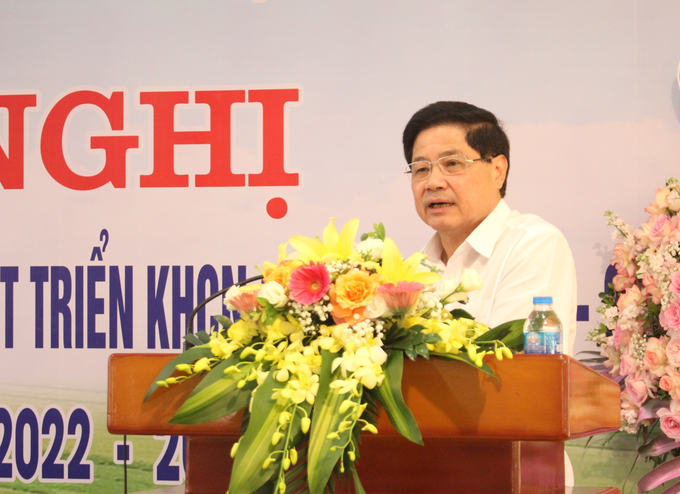
Deputy Minister of Agriculture and Rural Development Le Quoc Doanh highly commended the accomplishments achieved by the Field Crops Institute from 2016 to 2021. Photo: Trung Quan.
Regarding basic research, the Institute annually collects, maintains and evaluates over 2,000 samples of pure rice varieties, 500 samples of parent material of hybrid rice varieties, 500 samples of pea varieties, and over 200 samples of tuber varieties, 40 samples of plant varieties for animal feed, 200 samples of vegetable varieties of all kinds among many others.
Additionally, the Institute has conducted hybridization of starting materials on over 500 pure rice hybrid combinations; 100 hybrid rice combinations with improved CMS, TGMS, and parental lines; over 100 hybrid combinations of legumes, tubers and vegetables following research orientations; evaluate and select new varieties of food crops and food plants with regards to the criteria of yield, quality, resistance to pests, diseases, and unfavorable conditions, as well as suitability for production in the Northern provinces.
Regarding applied research, the Institute has selected, created and recognized 54 new plant varieties; 5 technological processes for production; established geographical indications for 5 agricultural products, 6 collective marks and 31 certification marks, etc.
In the research and development of models, the Institute has coordinated with farmers to produce appropriately and link markets to consume sustainable products; support the construction of 20 associations, guilds, 70 cooperatives and 100 cooperative groups with over 20,000 participating households, and so on.
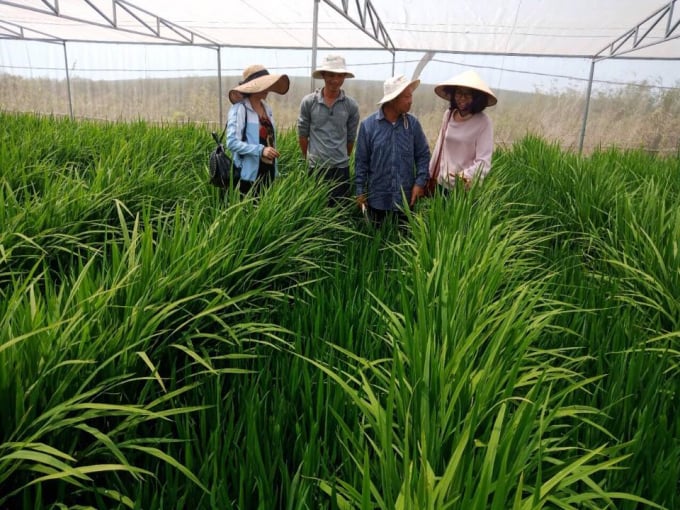
Various high-quality, high-yielding rice varieties have been researched and put into production by the Field Crops Institute. Photo: TL.
The Institute has successfully transferred 13 pure rice varieties, 3-breed hybrid rice variety HYT100 and the Thien Thanh 5 zucchini variety which have been commercialized.
According to Dr. Nguyen Trong Khanh, Director of the Field Crops Institute, the scientific workshop was held to collect input and open up discussion with the participants in order to help the Institute identify current strengths as well as limitations. Consequently, the Institute will be able to properly assess its potentials in research and transfer of science and technology; provide an accurate and feasible development orientation, meeting the requirements of production practice and daily life.
With this goal in mind, the Institute will continue to develop human resources and research equipment on a regional level; approach and appl modern technology in basic research, create science and technology products with scientific and practical value as well as high competitiveness based on the major crops such as rice, peas, tubers and vegetables.
In addition, the Institute will strive to strengthen oriented basic research with special focus on the fields of genetics, physiology, biochemistry, biotechnology, etc. in service of plant selecting and breeding research; research and transfer of integrated technical measures, high-tech agriculture with the aim of reducing production costs, post-harvest losses; improve productivity, quality and economic efficiency in the production of plants and food crops; prioritize research using hybrid advantages in plant breeding, capitalizing on hybrids as a breakthrough to improve biological productivity and quality of agricultural products.
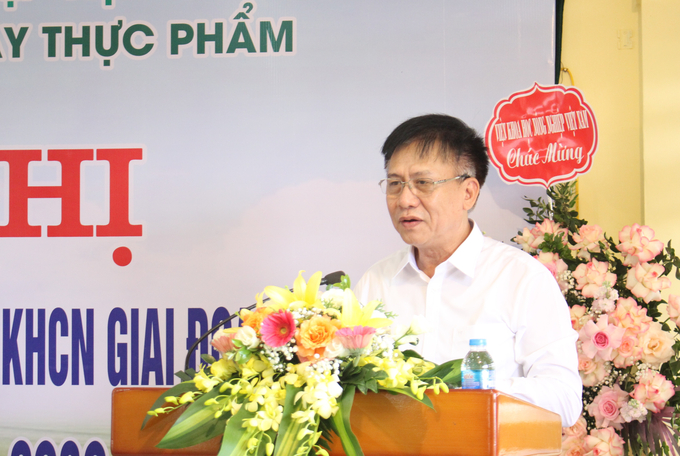
Dr. Nguyen Trong Khanh, Director of the Field Crops Institute commenting on the Institute's development orientations for the period from 2022 to 2030. Photo: Trung Quan.
At the conference, Deputy Minister of Agriculture and Rural Development Le Quoc Doanh highly commended the accomplishments that the Field Crops Institute has achieved in recent years, emphasizing that the Institute has begun to approach the research and application of biotechnology in selecting target genes and plant varieties.
According to Deputy Minister Le Quoc Doanh, science and technology plays an indispensable role in the development of green, sustainable and high-value agriculture. The room for agricultural science and technology development in the future is very promising. However, there are also many challenges facing research institutions including the Field Crops Institute, such as: financial autonomy; commercial competition of scientific products with domestic and foreign businesses; the increasing requirements of production activities as well as the needs of society among others.
Consequently, Deputy Minister Le Quoc Doanh suggested that for the next step, the Field Crops Institute should always clearly define its important position and role; evaluate and analyze favorable conditions, difficulties and challenges for scientific research. Afterwards, the Institute can establish its own development orientation with specific and guaranteed steps.

At the workshop, the participants discussed and commented on 14 specialized scientific and technological research reports. Photo: Trung Quan.
“The development orientation of the Institute has been clearly defined. The most important aspect is how the Institute can deploy it effectively. The Institute must always determine that creating quality products is essential to its survival. Therefore, there is no other way but to proceed honestly, to the end, and remain responsible.
A quality variety must be proven by the acceptance of locales, businesses, and people. If the Institute creates good products, it will be able to win the trust of society, thereby transferring, developing trade, increasing profits, and reinvesting in scientific research”, emphasized Deputy Minister Le Quoc Doanh.
Regarding the transfer of scientific and technical progress made by the Institute, Deputy Minister Le Quoc Doanh said that the Institute must review all linkages, evaluate the effectiveness of operations, as well as the degree of durability. If any weak links or positions are found, they must be corrected immediately.
In addition, the Institute needs to continue to build, train and foster its staff, with special attention to the young force in terms of ideology, morality, expertise, love for the profession, because this will be a decisive factor to the sustainable development of the Institute.
Translated by Nguyen Hai Long
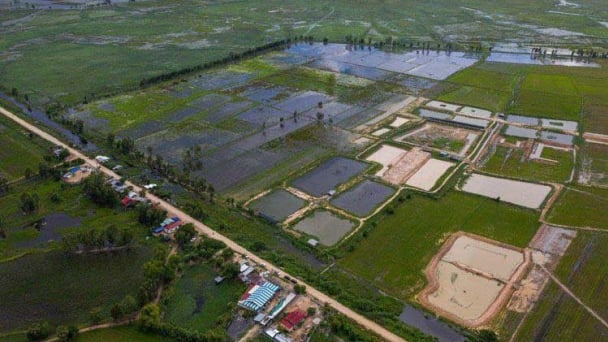
(VAN) Jiangsu province is gearing up to host training programs in Phnom Penh, the capital of Cambodia, this year to establish the Fish and Rice Corridor.
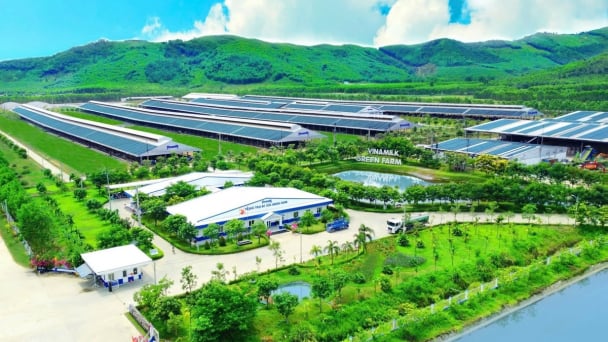
(VAN) Le Hoang Minh, representing Vinamilk, shared the company's experience in energy saving and green energy transition for production at a workshop held during the P4G Summit.
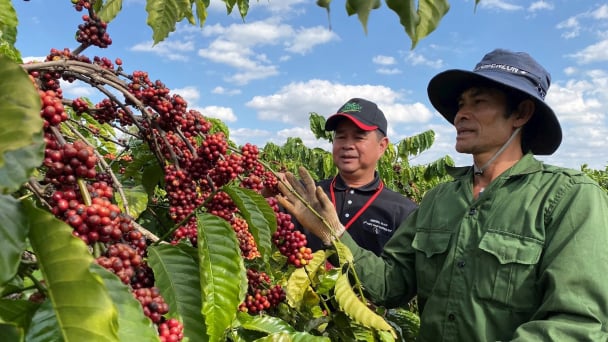
(VAN) Businesses emphasize fairness and equality when integrating social factors into their sustainable development strategies.
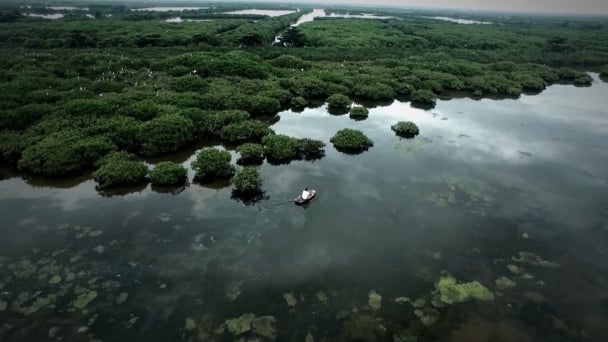
(VAN) French organizations and enterprises propose that Thai Binh province provide potential and long-term cooperation contents related to climate change response and green industrial development.
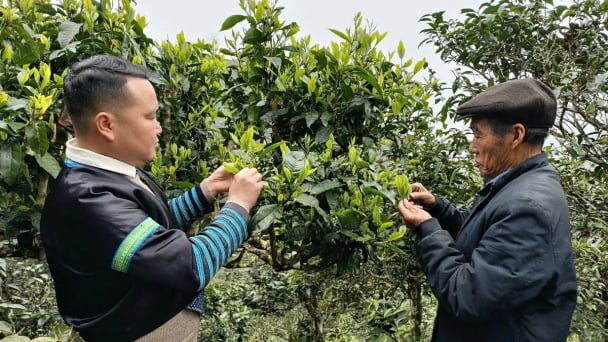
(VAN) Shan Tuyet tea is considered a 'heavenly treasure'. The H'mong people allow the tea to grow naturally, adhering to organic production principles, with the aim of exporting the product.
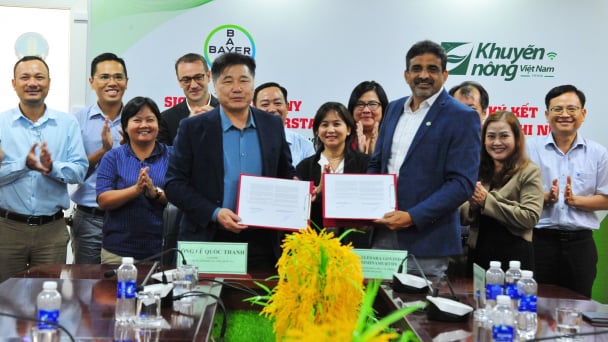
(VAN) Bayer Vietnam and the National Agricultural Extension Center have signed a partnership agreement to expand the development of effective and safe farming models for rice, durian, and coffee.
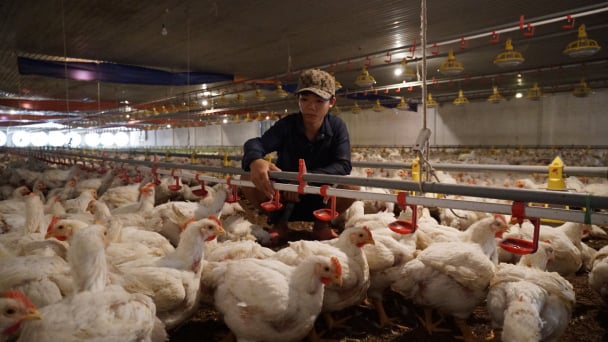
(VAN) Tay Ninh province possesses all the favorable conditions, from natural advantages to geographic location and social harmony, to drive economic development, particularly in attracting investment and advancing modern livestock farming.